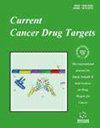Low Expression MCEMP1 Promoting Lung Adenocarcinoma Progression by and its Clinical Value
IF 2.3
4区 医学
Q3 ONCOLOGY
引用次数: 0
Abstract
Objective: We aimed to investigate the role of MCEMP1 in LUAD. Methods: MCEMP1 expression in LUAD was analyzed using The Cancer Genome Atlas (TCGA) data, and conducted univariate and multivariate Cox regression analyses to evaluate the prognostic significance of MCEMP1 expression in TCGA. Tumor Immune Estimation Resource (TIMER) was used for examining the correlation between MCEMP1 expression and immune cell infiltration in LUAD. Furthermore, proliferation, migration, invasion, and colony-forming ability were investigated using LUAD cell lines. Results: MCEMP1 had low expression in LUAD patient tissues and was correlated with lymph node metastasis, differentiation level, and tumor status. The Area under Curve (AUC) value of MCEMP1 for the Receiver Operating Characteristic (ROC) curve analysis was 0.984. The immune infiltration analysis revealed a correlation between MCEMP1 expression and the extent of macrophages and neutrophil infiltration in LUAD. Additionally, MCEMP1 has low expression in clinical samples, MCEMP1 overexpressed in LUAD cells substantially reduced cell growth, migration, and invasion of malignant cells. Conclusion: Low expression MCEMP1 promotes LUAD progression, which provides new insights and a potential biological target for future LUAD therapies.低表达 MCEMP1 促进肺腺癌进展及其临床价值
目的我们旨在研究 MCEMP1 在 LUAD 中的作用。方法利用癌症基因组图谱(TCGA)数据分析MCEMP1在LUAD中的表达,并进行单变量和多变量Cox回归分析以评估TCGA中MCEMP1表达的预后意义。肿瘤免疫估算资源(TIMER)用于研究LUAD中MCEMP1表达与免疫细胞浸润之间的相关性。此外,还使用 LUAD 细胞系研究了增殖、迁移、侵袭和集落形成能力。结果显示MCEMP1在LUAD患者组织中的表达量较低,且与淋巴结转移、分化程度和肿瘤状态相关。MCEMP1在接收者操作特征曲线(ROC)分析中的曲线下面积(AUC)值为0.984。免疫浸润分析表明,MCEMP1 的表达与 LUAD 中巨噬细胞和中性粒细胞的浸润程度相关。此外,MCEMP1 在临床样本中的表达量较低,而在 LUAD 细胞中过表达 MCEMP1 则会大大降低细胞的生长、迁移和恶性细胞的侵袭。结论低表达 MCEMP1 会促进 LUAD 的进展,这为未来 LUAD 治疗提供了新的见解和潜在的生物学靶点。
本文章由计算机程序翻译,如有差异,请以英文原文为准。
求助全文
约1分钟内获得全文
求助全文
来源期刊

Current cancer drug targets
医学-肿瘤学
CiteScore
5.40
自引率
0.00%
发文量
105
审稿时长
1 months
期刊介绍:
Current Cancer Drug Targets aims to cover all the latest and outstanding developments on the medicinal chemistry, pharmacology, molecular biology, genomics and biochemistry of contemporary molecular drug targets involved in cancer, e.g. disease specific proteins, receptors, enzymes and genes.
Current Cancer Drug Targets publishes original research articles, letters, reviews / mini-reviews, drug clinical trial studies and guest edited thematic issues written by leaders in the field covering a range of current topics on drug targets involved in cancer.
As the discovery, identification, characterization and validation of novel human drug targets for anti-cancer drug discovery continues to grow; this journal has become essential reading for all pharmaceutical scientists involved in drug discovery and development.
 求助内容:
求助内容: 应助结果提醒方式:
应助结果提醒方式:


